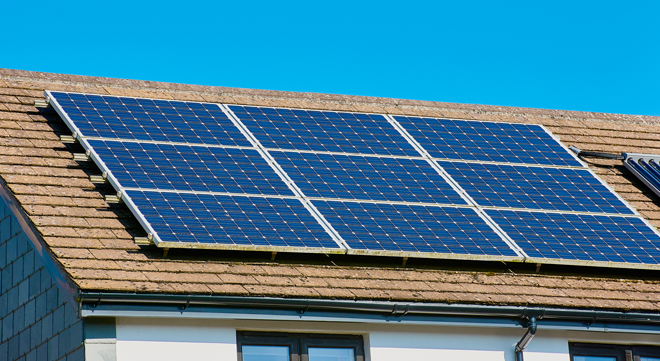Moonstone has reported on the tax breaks for homeowners and businesses intending to invest in renewable energy sources following the publication of the draft legislative amendments (the 2023 Taxation Laws Amendment Bill) that give effect to the tax relief measures announced in the 2023 Budget.
The two incentives are:
- A tax rebate of 25% of the installation cost, up to R15 000, of rooftop solar panels from 1 March 2023 (solar energy tax incentive).
Read: A deeper look at the solar panel tax incentive for individuals
- A tax rebate of 125% of businesses’ cost of investment in renewable energy sources, such as solar, hydropower, biomass, and wind (enhanced renewable energy tax incentive).
Read: How the expanded section 12B allowance may benefit businesses
A fully functioning solar energy system does not only require the installation of rooftop solar panels – each component, which includes inverters and batteries, is crucial. However, the solar energy tax incentive is restricted to the cost of solar panels, although inverters and batteries are typically just as, or even more, expensive than the solar panels, say Carryn Alexander, a partner at Webber Wentzel, and Sakiwe Canca, a candidate attorney at the law firm.
Their commentary continues:
Treasury advised that the solar energy tax incentive is aimed at bringing more generation capacity online. However, any rooftop solar system that feeds into the grid, as supposedly encouraged by the solar energy tax incentive, requires an inverter to convert the direct current (DC) electricity (generated by the solar panels) to alternating current (AC) electricity, which is what is needed for the energy to be fed back into the national electricity grid.
An inverter is evidently a crucial part of any solar energy system and is thus the sine qua non for qualifying for the solar energy tax incentive. For inverters not to be covered by the solar energy tax incentive is therefore unintelligible.
During a virtual public workshop held on 22 May, Treasury recognised that many taxpayers already had inverters and batteries but argued that these did not generate more electricity; they “simply consumed electricity during one period, stored it and then released it later”.
Treasury explained that by encouraging the installation of solar panels, more power would be brought to the grid, and inverters and batteries were excluded from the rebate because of budgetary constraints.
Inverters and batteries are included in the business tax incentive
Ironically, while Treasury does not recognise the necessity of inverters and batteries for the purposes of applying the solar energy tax incentive, it confirmed the necessity of these components for the enhanced renewable energy tax incentive.
During the workshop, a concern was raised that the wording of section 12BA, which refers to assets “to be used by that taxpayer in the generation of electricity”, does not cover inverters and batteries.
Treasury said the use of the word “in” made the provision wider than the actual generation part of the system, and thus includes inverters and batteries as a necessary part of the electricity generation system.
Treasury’s misunderstanding of the workings of an efficient solar energy system and its approach to combating South Africa’s energy crisis through the application of the solar energy tax incentive is not only disconcerting but also appears short-sighted.
Moreover, to apply for the solar energy tax incentive, the solar panels must be “new and unused”. Treasury explained that the word “new” means the tax credit can be claimed only for panels that are recently acquired. Therefore, panels that have been held in storage for a while before installing them would be considered “old and unused”. On the face of it, it seems as though this qualifying criterion was inserted to prevent taxpayers from claiming a deduction on solar panels that were acquired prior to 1 March 2023 but only installed on or after 1 March 2023. The only clear reason for doing this appears to be cost saving on the part of Treasury.
When one considers the magnitude of the energy supply crisis that South Africa is facing, as well as the imminent climate catastrophe, the pecuniary gain that Treasury seeks to obtain is injudicious and defeats the so-called purpose of the solar energy tax incentive.
Therefore, while the introduction of the solar energy tax incentive constitutes a clear indication by the government of its commitment to tackle the energy supply crisis and the imminent climate catastrophe, the fiscal conservatism by Treasury may ultimately be its undoing.



